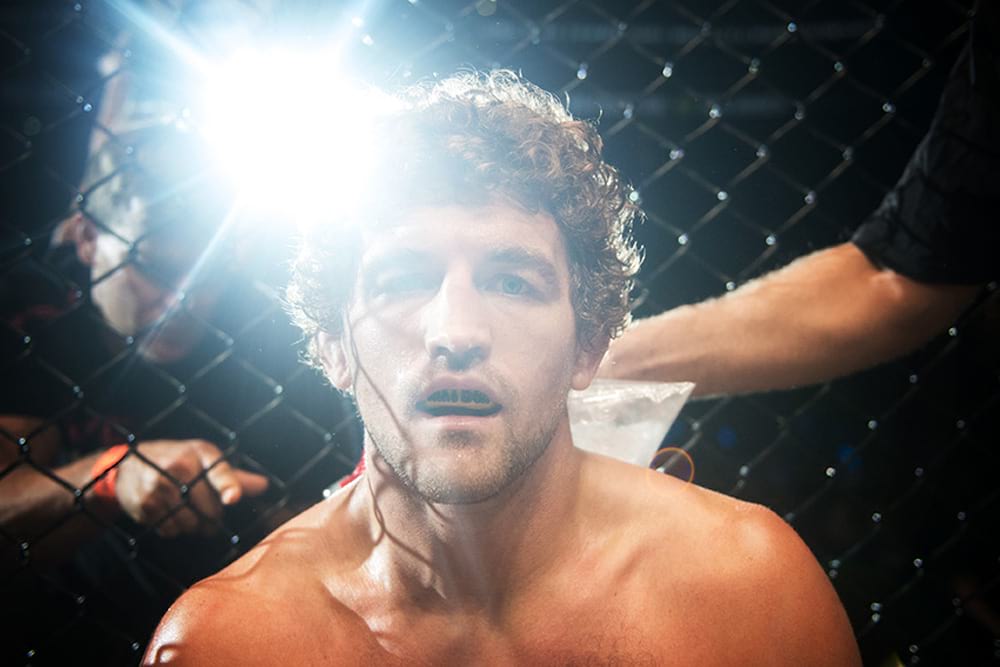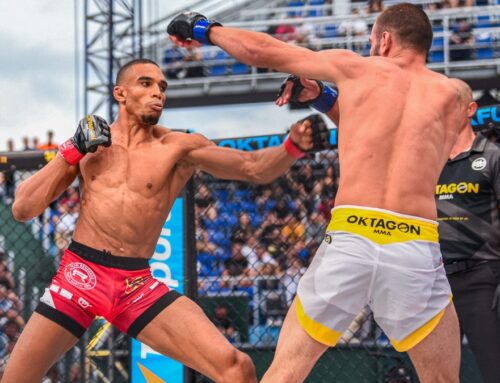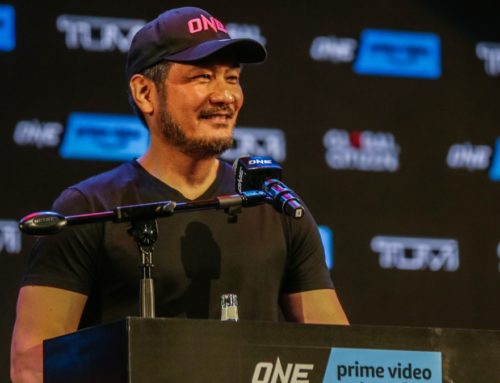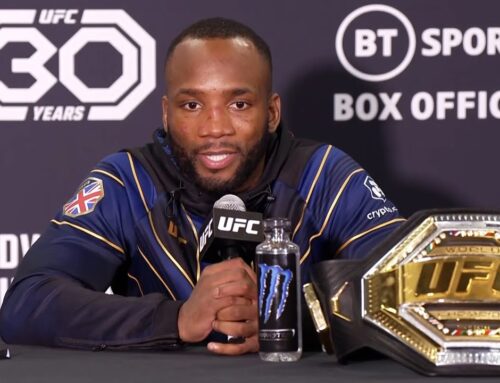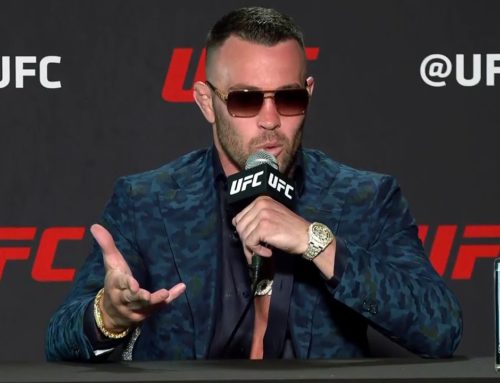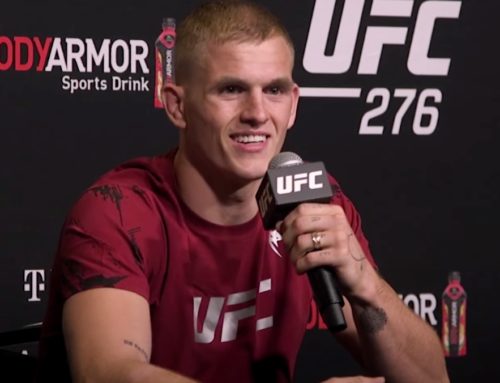Is it possible to miss something you never had? That’s the question on the minds of mixed martial arts fans this week as they prepare – some of them – to watch ONE Championship welterweight king Ben Askren compete for the nineteenth and final time.
For those who have been able to follow Askren’s exploits around the world, and appreciate his unique brand of winning, Friday (November 24) represents quite a moment, the end of something special. Yet for those left in the cold, those who wanted more from the American, it won’t feel like a departure at all because it never felt like he was really present in the first place.
Askren, of course, has long been a polarising figure in MMA. Most agree he’s a masterful wrestler, one good enough to go 153-7 in college and represent USA at the 2008 Olympics, but as a pro mixed martial artist ‘Funky’, as he’s known, curiously decided to do things on his own terms, away from the spotlight, the big leagues, the competition, and many hate him for it. That he has won every one of his 19 professional fights to date, and done so with ease, owes either to the fact he is head and shoulders above every welterweight on the face of the Earth, including those who campaign in the UFC, or because his level of opposition is woefully sub-par. One of the great MMA debates, it all depends on your point of view.
The case for Askren is a strong one, led by purists. It praises rather than chastises his decision to go it alone, stick to his guns, and scoff in the face of the path well-travelled. And retiring now, at the age of 33, only adds strength to this idea that Askren, rather than the great avoider and someone out for an easy ride, was, in fact, an intelligent man who used MMA when everyone else, other fighters, were letting it use them. He got what he wanted out of it and then got out. He made his money, he won his belts. He then had enough. Moved on. What’s more, despite having never competed in the UFC, Askren has still managed to create a resume comprising the likes of Douglas Lima, the current Bellator welterweight champion, Andrey Koreshkov, the former Bellator welterweight champion, Jay Hieron, Nick Thompson and Luis Santos. It could be better, but it’s not bad.
The case against Askren cares little about his intelligence as a fighter and businessman and deals instead with his apparent reticence when it comes to taking risks. Askren, they say, never sought out the best challenges available because he was happy in his comfort zone, stifling men he knew he could stifle, and didn’t like the idea of being removed from it. He wanted everything on his terms. Everything from the terms in the contract to the flow of the fight. It all had to be in favour of Ben Askren. If it wasn’t, he didn’t want to know.
“But that’s not fighting!” his critics shout. You can’t always have it your own way. You have to take risks, put your neck on the line, dare to be great. By not doing that, by running up an undefeated record of 18 fights but never facing the very best in the world, Askren, they reckon, falls some way short of greatness.
There’s also a degree of frustration when it comes to analysing Askren’s career because, differences aside, who wouldn’t have liked to see him fight in the UFC at some point? Being deprived of the chance, and therefore not knowing the answers to so many questions, is what really hurts. There’s also perhaps frustration directed the way of the UFC, who, despite Askren’s run away from the organization, never seemed all that keen to go out of their way and bring him onboard. His style wasn’t fan-friendly, by all accounts. Nobody wanted to watch him fight. He wouldn’t rack up big numbers. So they left it; shrugged their shoulders, looked the other way. They wanted to see if he’d come to them.
But Askren, stubborn and self-assured, was never likely to acquiesce. Instead, he watched as inferior welterweights graced the Octagon, kept faith in his ability and style and made his money and legacy, however strong or weak, elsewhere. He did it first in Bellator and, since 2014, has been doing it in ONE Championship, where he is considered not only their 170lb champion but also one of the greatest mixed martial artists to ever live. Treated with more than just respect, Askren has been taken to the hearts of the Asian MMA fan base, viewed not as an acquired taste but as fine dining; something to be savoured, not switched off.
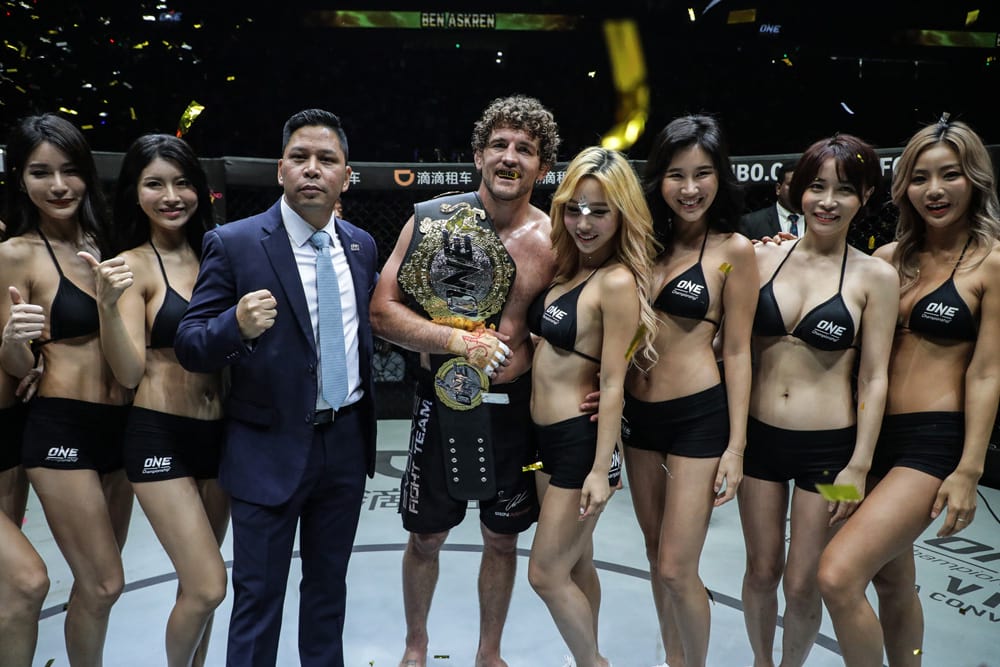
“Ben Askren is a spectacular martial artist,” says Askren’s next opponent, Shinya Aoki, a legend of Asian MMA. “He is an athlete I really respect. He has his own goal for his career, and I have mine as well. I am here to win another belt in ONE Championship and redeem myself in front of the world. I want to win again. I am not satisfied yet. I am here to face the best.”
They call him The Best. The fans call him The Best; so do his peers. In fact, most within the game, those who have trained alongside him, fought him, or simply watched him on internet streams, consider Ben Askren The Best.
“I said from day one that I am the best in the world at what I do, and this is what I am going to prove every single time,” Askren, 17-0 (1 NC), says. “I have been saying that since I started my career, and I believe it more strongly than ever because I have proven it 17 times now. I am pumped to prove it again on November 24th. Shinya is a really good opponent. Obviously, he is a legend of the sport, and he is a really big challenge on the ground, which is where I like to compete. I am excited for this bout. He is a grappler and has a great skill-set that I respect. I think it will be a great battle.”
It’s rare that a Ben Askren fight amounts to a ‘great battle’. Conversely, his fights are typically one-sided, with Askren in the ascendancy from start to finish. He can take opponents down when he wants to take them down and, once he has them where he wants them, is able to do pretty much whatever the hell he wants. His six consecutive decisions in Bellator cultivated a reputation for being boring, but Askren has ended six of his last seven fights inside the distance and is now displaying a ruthlessness he once lacked, albeit against a certain calibre of opposition.
Which brings us to Shinya Aoki, his next and final opponent. Aoki, unlike recent Askren challengers, is at least a recognisable name. A pro since 2003, the Japanese legend has been in with some of the best fighters of all-time, and is a former ONE Championship and DREAM lightweight champion. He has pedigree in spades. He’s a wonderful submission artist. But he’s also 34 years of age, has nearly 50 fights to his name, and is anything but a natural welterweight, let alone a welterweight strong enough to hold his own with one of the most robust in the game.
Chances are, then, Shinya Aoki goes the way of every other Askren opponent. He gets taken down at will, controlled and potentially finished. But here’s the problem: if that’s expected to happen, and if it’s almost designed to happen (this being Askren’s final fight and all), what does any of it mean? What does it prove if Askren, one of the best welterweights in the world, is able to dominate and suffocate Aoki, not one of the best welterweights in the world, in much the same way he has dominated and suffocated everybody else?
Frankly, not a lot. And, whatever the rights and wrongs, therein lies the problem with Ben Askren’s MMA career. He’s brilliant, possibly the best, but without context and without proof, it’s hard to decipher what any of it means.

